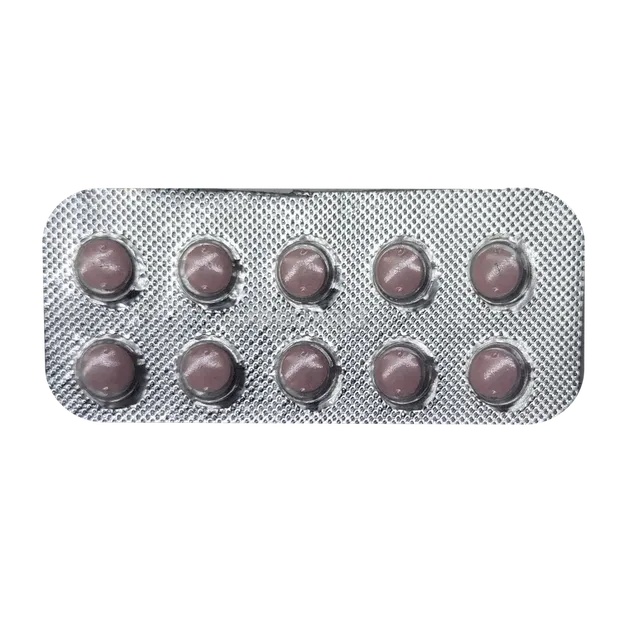
Prescription Required

Authentic Product

India's Leading Generic Pharmacy

Secure Payment
By IPCA LABORATORIES LIMITED
MRP
₹
39.47
₹33.55
15 % OFF
₹3.36 Only /
TabletCheck Delivery
--
Composition
Content Reviewed By:
Dr. Amit Patel
, (MBBS)
Written By:
Ms. Kavita Desai
, (B.Pharm)
Most side effects are temporary and disappear as your body adapts to the medication. However, if any side effects persist or cause concern, it's important to consult your doctor.

Liver Function
CautionGLYREE 1MG TABLET 10'S should be used with caution in patients with liver disease. Dose adjustment of GLYREE 1MG TABLET 10'S may be needed. Please consult your doctor. However, the use of GLYREE 1MG TABLET 10'S is not recommended in patients with severe liver disease. These patients can experience very low blood sugar levels which may become normal after a long time.
The recommended starting dose of GLYREE 1MG TABLET 10'S is 1 mg or 2 mg once daily, administered with breakfast. If you are at a higher risk of low blood sugar (e.g., the elderly or patients with renal impairment), you will be given a starting dose of 1 mg once daily. The usual maintenance dose is 1–4 mg once daily. The maximum recommended dose is 8 mg once daily. After reaching a daily dose of 2 mg, the dosage will be increased not more than 2 mg at 1- to 2-week intervals, based on your blood glucose level.
GLYREE 1MG TABLET 10'S itself does not cause sleepiness. However, it may cause hypoglycemia (low blood sugar) when used with other anti-diabetes medicine. Because of this you may feel sleepy or have problems in sleeping.
GLYREE 1MG TABLET 10'S does not affect kidneys in patients with normal kidney function. However, its use should be avoided in patients with severe kidney disease since GLYREE 1MG TABLET 10'S is principally eliminated by the kidneys.
No, it is not known that GLYREE 1MG TABLET 10'S causes memory loss. However, the use of GLYREE 1MG TABLET 10'S may cause low blood sugar which may cause problems with concentration and reduced alertness.
GLYREE 1MG TABLET 10'S should be avoided by patients who are allergic to it, have severe kidney or liver disease, have G6PD-deficiency (an inherited condition affecting red blood cells) or are due to have surgery. Additionally, patients who are trying to get pregnant, are pregnant or breastfeeding, or have insulin-dependent diabetes (type 1 diabetes mellitus) should avoid taking GLYREE 1MG TABLET 10'S.
GLYREE 1MG TABLET 10'S takes about 2 to 3 hours to reduce blood sugar levels. You may not feel any difference, but this does not mean the medicine is not working. Continue taking the medication as directed by your doctor and if you have any concerns, discuss it with your doctor.
Usually, the treatment for diabetes is suggested for a long term. You may have to continue the treatment life long. GLYREE 1MG TABLET 10'S only controls the sugar levels but does not cure it. Do not stop taking GLYREE 1MG TABLET 10'S without talking to your doctor. If you stop taking GLYREE 1MG TABLET 10'S suddenly your diabetes may get worse.
GLYREE 1MG TABLET 10'S should be taken strictly as advised by the doctor. Overdose of GLYREE 1MG TABLET 10'S may significantly decrease your blood sugar levels (hypoglycemia). If you think you have taken an excess dose and experience a dip in your sugar level, consume enough sugar (e.g., a small bar of sugar cubes, sweet juice or sweetened tea) and inform a doctor immediately. Severe cases of hypoglycemia accompanied by loss of consciousness and coma require immediate medical treatment and admission into hospital.
No. Taking GLYREE 1MG TABLET 10'S on an empty stomach can cause your blood sugar levels to become too low. Low blood sugar can cause dizziness, shaking, anxiety, irritability, a fast heartbeat, and confusion. Therefore, you should always take the medicine with breakfast or the first meal of the day. If you are skipping your meal, then you should also avoid taking GLYREE 1MG TABLET 10'S.
Yes, GLYREE 1MG TABLET 10'S can cause weight gain. GLYREE 1MG TABLET 10'S is a sulfonylurea drug and causes the pancreas to release insulin. It may stimulate hunger and cause mild weight gain in some people. Patients are advised to eat a healthy balanced diet and exercise regularly to keep their weight stable.
Yes, GLYREE 1MG TABLET 10'S can cause dizziness as a side effect. If this happens to you, sit or lie down until the symptoms pass. Always carry some sugary food or fruit juice with you in case you experience dizziness while travelling.
It is advisable to avoid foods that are high in saturated and trans fats, instead consume fats from fish and nuts. Control your carbohydrate intake as this directly affects your blood sugar.
Yes, GLYREE 1MG TABLET 10'S tablet is safe when used as directed by the doctor. However, it may show some side effects. For best results, it should be used in the correct dose and at the same time each day.
Yes, people with diabetes must include proteins along with other essential nutrients in their daily diet. Proteins are one of the major energy providers among all essential nutrients. Besides, being the building blocks of the human body, proteins break down into glucose to release energy. Unlike carbohydrates, the metabolism of proteins into glucose is much slower. Therefore, the release of energy usually takes a few hours after consumption. Thus, the spike in blood sugar levels might occur after a few hours when you are on a high-protein diet.
No, artificial sweeteners are not good for people with diabetes. They are composed of chemicals that can cause mild to severe side effects. Thus, it is better to limit or avoid their use as much as you can.
Yes, uncontrolled diabetes can cause kidney failure. In the long run, diabetes can affect the kidneys leading to a condition called diabetic nephropathy. Diabetic nephropathy is a condition that is a major cause of kidney failure in patients with diabetes. The best way to prevent damage to kidneys is by keeping diabetes in check, making dietary changes, monitoring sugar levels regularly, getting routine blood tests done, and taking prescribed medications on time.
Diabetes is a condition that causes changes in your blood glucose levels, which if left uncontrolled, can lead to serious health complications affecting the heart, brain, kidneys, and eyes. However, with simple lifestyle changes, diet, and medications, one can manage their condition and lead a healthy life.
Got medicine which I was searching from yesterday thanks
Donisalya vines
•
Reviewed on 18-02-2024
(5/5)
Good service. Public relations are very good.
Pallav Bhatt
•
Reviewed on 22-11-2022
(5/5)
Best medicines at best prices, thanks medkart
Ajay Varghese
•
Reviewed on 05-08-2023
(5/5)
It's good work and always best treatment and every time attend coustomer properly and perfectly
Shraddha Landge
•
Reviewed on 23-01-2024
(5/5)
Best medicines, Timing and behaviour is very good for human beings
Gyan Rathore
•
Reviewed on 07-08-2023
(5/5)
IPCA LABORATORIES LIMITED
Country of Origin -
India
Medkart's sole intention is to ensure that its consumers get information that is expert-reviewed, accurate and trustworthy. However, the information contained herein should NOT be used as a substitute for the advice of a qualified physician. The information provided here is for informational purposes only. This may not cover everything about particular health conditions, medicines, generic alternatives, all possible side effects, drug interactions, warnings, alerts, lab tests, etc. Please consult your doctor and discuss all your queries related to any disease or medicine. We intend to support, not replace, the doctor-patient relationship.
10 Lakh+
Happy customers
35000+
Pin-codes Covered
75 Lakh+
Orders Delivered

Authentic Products
All WHO-GMP Certified Medicines
©2025 Medkart Pharmacy. All Rights Reserved